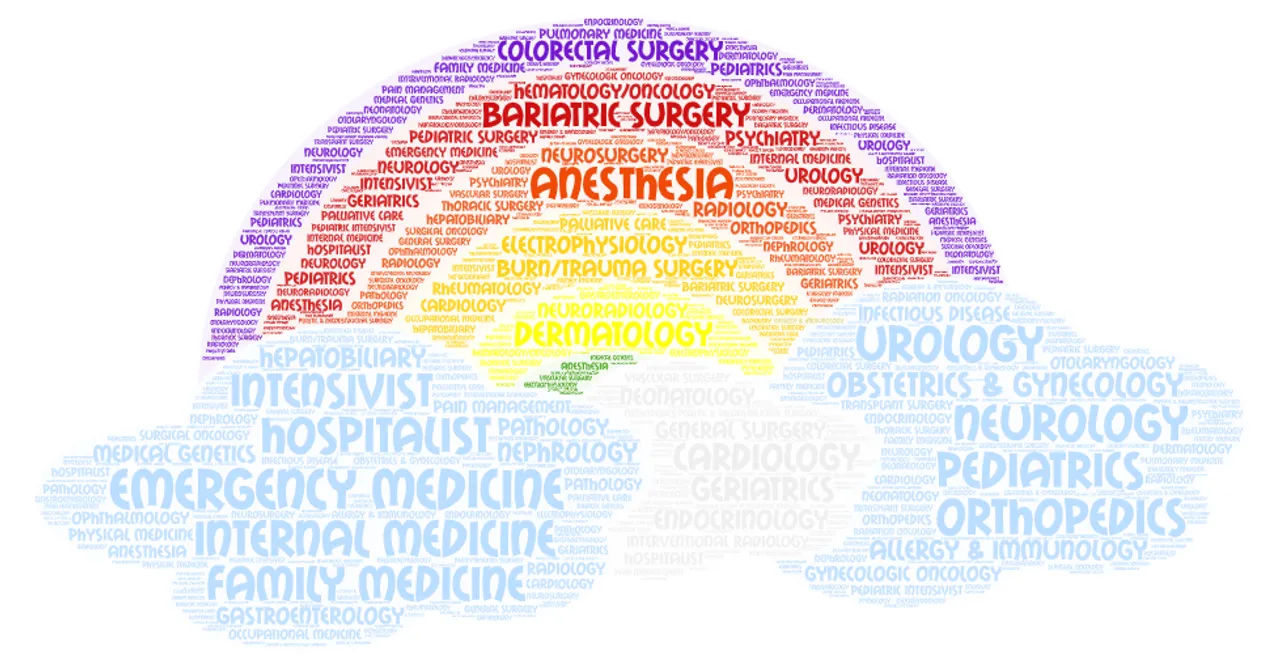Choosing a Specialty in Medical School
 Deciding upon a specialty can be one of the most difficult tasks faced by medical students during their training. As if the stress of studying for cardiology was not enough, now you’re being asked to select rotations and to make some of your elective choices based on what your chosen specialty will be. For many students, this added layer of anxiety comes without a clear idea of how to choose a specialty. While we have guides that tell us how to examine patients, how to take tests, even how to grade a patient’s stool, the medical school curriculum doesn’t seem to offer much in the way of a systematic approach to selecting the specialty you will dedicate your life to. What follows are some simple first steps to aid you in this process, and to hopefully help you find your dream specialty.
Deciding upon a specialty can be one of the most difficult tasks faced by medical students during their training. As if the stress of studying for cardiology was not enough, now you’re being asked to select rotations and to make some of your elective choices based on what your chosen specialty will be. For many students, this added layer of anxiety comes without a clear idea of how to choose a specialty. While we have guides that tell us how to examine patients, how to take tests, even how to grade a patient’s stool, the medical school curriculum doesn’t seem to offer much in the way of a systematic approach to selecting the specialty you will dedicate your life to. What follows are some simple first steps to aid you in this process, and to hopefully help you find your dream specialty.
What if I already know what I want to do?
Before we discuss a systematic approach to selecting a specialty, we will address the lucky portion of medical students who came to medical school with a specific specialty in mind. If you are beginning this journey with an already established goal, congratulations! Your primary goal should be to identify and connect with mentors in your chosen specialty. Regularly meeting with mentors who are vested in your success will help you develop a support network that is vital to excelling in medical school and eventually in the residency application process. Not only will these mentors be able to tell you about the ins and outs of patient care in their specialty, open discussions with them will often highlight some of the potential negatives you may not have considered as a pre-med. In addition to these benefits, building meaningful relationships with mentors at your medical school will also help you in the residency application process, as these mentors know the steps needed to match into the specialty, and they may be able to provide networking opportunities with residency program directors.
What if I have no clue!?
Step 1 – What do YOU want in a specialty, intellectually?
The first step is to take a deep breath. This is a major decision, and uncertainty is a normal part of the process. Next, try to think back to what drew you to apply to medical school in the first place. Develop an idea in your mind about what kind of doctor you imagined you would be – were you always doing the diagnosing? Was immediate treatment more important to you? Did you value the patient-doctor relationship? - Having an idea of what attributes of medicine are most important to you will help you evaluate specialties and how well they might fit your personal and career goals.
Step 2 – What do YOU want in a specialty, personally?
This article may be the only place that you read this piece of advice because of the machismo associated with much of medicine, and the idea that suffering or living a difficult lifestyle somehow makes us better people or physicians. As a medical student, one of my mentors counseled me to think about the lifestyle I wanted and choose a specialty based on that. His point was that many facets of medicine are similar across specialties; however, no one would assert that an internist and a neurosurgeon live the same lifestyle with respect to training length, intensity, call demands, etc. Considering the potential impact that a specialty may have on your life is vitally important. If you LOVE neuroscience but can’t stand to make decisions and don’t do well under stress, neurosurgery is likely not the ideal choice for you. Not every specialty is created equally, and an honest appraisal of the demands that will be placed on you is vital to understanding the lifestyle you will have as an attending.
To put it simply, consider the kind of life that you want to live, and make sure that the specialty you are considering not only allows you to live that life but also enhances or adds to the life you envision for yourself.
Step 3 - Explore
Now that you’ve considered the intellectual and personal attributes you’re looking for in a medical specialty, the key is to gain a broad exposure to give you the most information to make your decision. Clinical rotations and shadowing are two key pathways to obtain this exposure during medical school.
Rotations are part of your medical school curriculum for a reason. To get the most out of them, find some aspect of every rotation that speaks to you or that you find interesting. I can honestly say that as a future neurosurgeon, I enjoyed every rotation from family medicine to psychiatry. Each will teach your valuable skills, expose you to different ways to treat patients, and broaden your medical knowledge. By approaching each rotation with a sense of curiosity and openness, you are learning more about that specialty and the typical lifestyle for that type of physician. This information is invaluable for helping to narrow your potential specialty choices.
This may not seem obvious, as most medical students hoped their shadowing would end with their admission to medical school, but shadowing is a fundamental way to explore different specialties during medical school. Shadowing as a medical student, with a very different perspective from the pre-med, allows you to really look at what the specialty does, not what do you think it does. This direct, hands-on approach to evaluating a chosen specialty provides invaluable information for your decision-making, and it also allows you access to the ‘intangibles.’ You will find that different specialties tend to attract different personality types, and sometimes just spending time with these different doctors will be all you need. Sometimes it isn’t list-making, intellectual alignment, or perceived lifestyle that guides you to pursue a specific specialty. Sometimes all it takes is rounding with a care team at midnight as a medical student, realizing that there is no other place you would rather be, and thinking to yourself “These are my people.”
Conclusion
Regardless of whether you came to medical school with a specialty in mind or you have no clue, the first step of the process is to really consider what you want out of your career and how you want to practice medicine. Considering how a potential specialty might impact your overall lifestyle is another consideration, and then gaining as much first-hand experience as possible to assist in the decision-making process is the crucial third step. Eventually, you will find ‘your people’ in medicine, and that sense of belonging, even in the difficult times, will confirm you’ve made the right decision!
Related Posts
